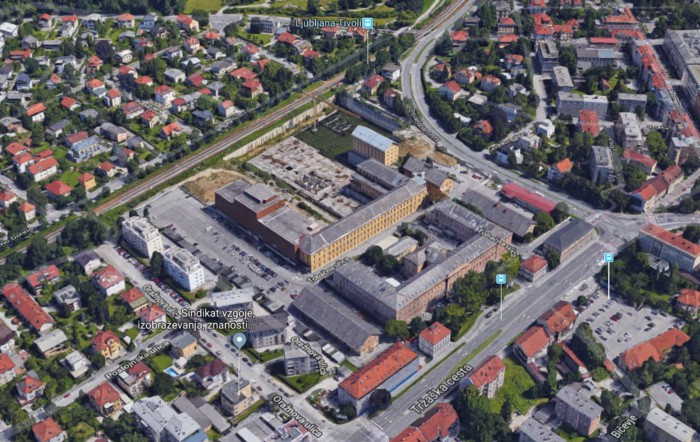
Tobačna (Tobacco factory) is a mixed-use area on the perimeter of the city centre of Ljubljana. It used to be an important production centre, but from 60’s to 90’s it has transformed into a vibrant hub for offices, event spaces and catering services. In fact, Tobačna has the highest number of creative industries in Ljubljana and Slovenia, making it interesting to look closer.
The position of local partners in Ljubljana
All partners in the project Urban Education Live (UEL) perform social mapping on a local scale. From the beginning of the project, Ljubljana team has been in two-sided position towards a local presence and there are several reasons behind. The national funding contract is limiting towards on-site research and there are scarse funding available for applied research or innovation.
Ambition
There is an ambition, however, to use the local presence of IPoP (their offices are located there) to conduct some form of social mapping in Tobačna. The following paragraphs explore the possibilities, organisation and results, listed are topics and ideas for social mapping.
Expected results on a project level
The expected results on a project level would be on a methodological and practical level. The local team would develop various methodologies and approaches for analysing such ares. When done, it would contribute to a know-how on social mapping of large single buildings or defined urban areas.
Expected local results
The results on a local level would be three-fold: leaning, relating and supporting. The main result is learning about spatial and social environment in Tobačna. People and organisations in the area would get to know each other more and possibly establish the closer collaboration. As a side effect, it could lead to a higher social cohesion in the area.
Methodology
The methodology for Social mapping in Tobačna would be a combination of open-ended and defined elements.
The core of the research would be open-ended stream of in-situ events and studies, while auxiliary support research would fill in the professional aspects, done with other partner organisations, ideally with various faculties within the University.
The Core would be open-ended, minimal in scope, engaging social dimension and start the process. While Support research would be a multitude of defined peripheral studies, testing and using various research methods that would be used then they are developed.
Action plan
Actions for social mapping in Tobačna are divided into Core and Support activities.
Core activities are coordinated by IPoP:
- Selection of 10 organisations from the area (5 known and 5 random) — Spring 2018
- Interviews with those 10 organisations — Spring and Summer 2018
- Nurturing the relationships with social activities (Jane’s Walk, summer and winter gathering) — From Spring 2018 to Autumn 2019
- Evaluating the impact of participation.
The optional Support activities are done by University of Ljubljana, coordinated by Faculty of Social Science. The scope of the research methods is to be determined in the near future, but each of the analytical part should ideally not exceed 10 working hours.
